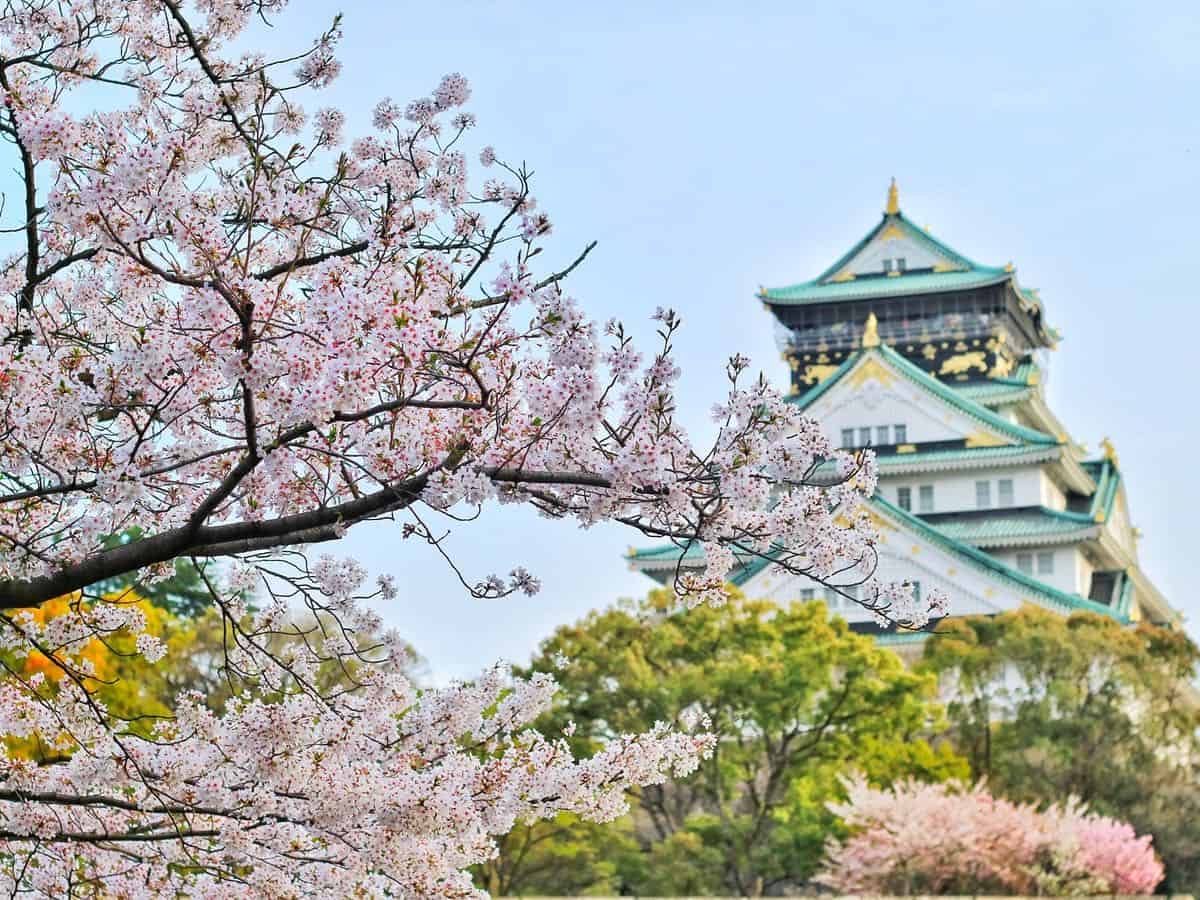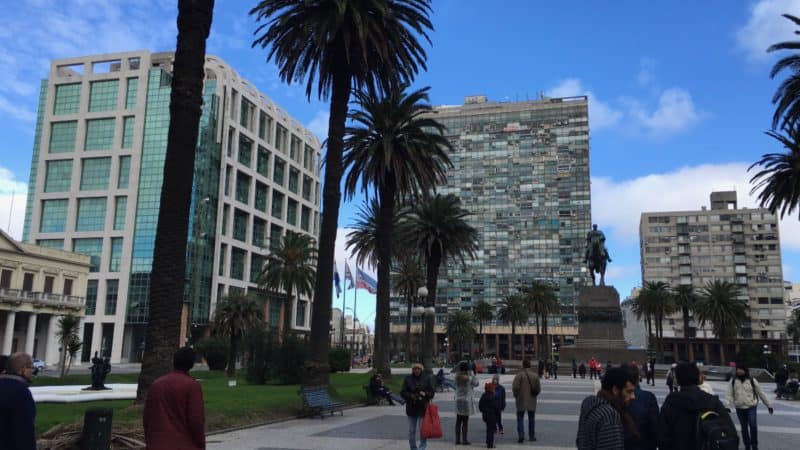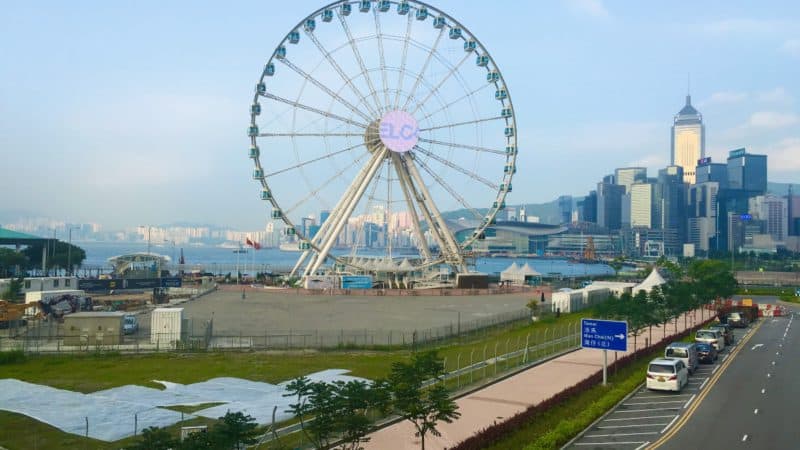Japan’s Working Holiday Visa for Australians

Interested in experiencing life in Japan? You can, with a working holiday visa!
Australia and Japan have had a reciprocal working holiday visa agreement since 1980. If you’re an Australian aged between 18 and 30 years old, you could apply for a Japanese working holiday visa which allows you to live and work in Japan for up to 18 months.
This visa is primarily intended for Australians who would like to have an extended holiday in Japan. The Japanese government encourages working holiday makers to visit different parts of Japan, and not to stay more than 3 months in one place.
You are allowed to work during your holiday, with some restrictions on types of employment.
The visa is initially valid for six months. But Australians have the possibility to request two further six-month extensions, bringing the total maximum stay to 18 months.
Many Australians in Japan work in Japanese ski resorts during the winter or get jobs teaching English. But you’ll have many more options (and find living in Japan much easier and more enjoyable) if you are able to speak some Japanese. For this reason, it would be a great idea to take some Japanese language classes before moving to Japan.
Note that the Japanese government does not allow working holiday makers to work in “bars, cabarets, nightclubs, gambling establishments, and other premises affecting public morals in Japan”.

This page contains information about Japan’s Working Holiday Visa for Australian citizens. It was last updated on 3 March 2025.
Key facts about Japan
- Population: Approx. 123 million
- Official language: Japanese
- Capital city: Tokyo
- Largest cities: Tokyo, Yokohama, Osaka, Nagoya, Sapporo
- Name of the country in Japanese: 日本 (Nihon or Nippon)
- Currency: Japanese Yen (JPY)

Japan Working Holiday Visa requirements for Australians
In addition to Australians, Japan offers working holiday visas to citizens of countries including New Zealand, Canada, South Korea, France, Germany, UK, Ireland, Denmark, Taiwan, Hong Kong, Norway, Portugal, Poland, Slovakia, Austria, Hungary, Spain, Argentina, Chile, Iceland, Czech Republic, Lithuania, Sweden, Estonia, Netherlands, Uruguay, Finland, Latvia and Luxembourg.
The information on this page applies to Australian citizens. Please check the Ministry of Foreign Affairs of Japan website for information applicable to citizens of other countries.
To apply for a Japanese working holiday visa as an Australian citizen, you must meet the following requirements:
- Aged between 18-30 years old (inclusive) at the time of application
- Be currently living in Australia
- Be in good health and “of good character”
- Have at least AUD2,500 in savings (or AUD3,500 for a couple)
You cannot apply for this visa if you:
- Will be accompanied by dependent children
- Have previously held a Japanese working holiday visa
Documents needed to apply for this visa
When applying for a working holiday visa for Japan as an Australian citizen, you will need to provide the following documents:
- Valid Australian passport and a copy of your passport photo page
- Visa application form (PDF) (see example)
- Recent passport-sized photo
- Flight reservation to/from Japan (if you only have a one-way ticket, you’ll need to demonstrate sufficient funds to buy a return ticket)
- CV/resume
- Proposed schedule (PDF) for the first six months of your stay in Japan – you are encouraged to have a detailed plan, and not to stay in the same place for more than 3 months (see example)
- A letter (signed, dated and at least one A4 page in length) explaining why you would like to visit Japan as a working holiday maker
- Bank statement/s showing you have at least AUD2,500 in savings (or more if applying as a couple and/or you don’t have a flight booked)
Do not staple these documents together.
There is no cost to apply for this visa.
For more information, see the Embassy of Japan in Australia website.
How to apply for a working holiday visa for Japan
You can apply for this visa in Australia up to 12 months before your intended arrival date in Japan, although we’d suggest applying closer to the time.
Lodge your visa application in person at any of the following Japanese missions in Australia, depending on where you live:
- Embassy of Japan in Canberra (ACT residents only)
- Consulate-General of Japan in Sydney (NSW & NT residents only)
- Consulate-General of Japan in Perth (SA residents only)
- Consulate-General of Japan in Brisbane (QLD residents only)
- Consular Office of Japan in Cairns (Cairns area residents)
- Consulate-General of Japan in Melbourne (VIC, SA & TAS residents only)
It takes a minimum of 5 working days to process the working holiday visa, or longer if additional documents are requested. Once issued, you can travel to Japan.

Arrival in Japan
If you arrive at Narita, Haneda (Tokyo), Kansai (Osaka) or Nagoya (Chubu) international airports, you can collect your residence card on arrival at the airport.
Otherwise, you can apply for your residence card at an Immigration Office after entering Japan and must do so within 90 days.
The working holiday visa is a single-entry visa. If you would like to leave and re-enter Japan while your residence card remains valid, you will need a special re-entry permit. You can apply for this at the airport on departure if you intend to return within a year.
After finding a place to live, you’ll also need to visit the municipal office in your place of residence within 14 days and file an incoming residence/moving-in notification.
The working holiday visa will initially be valid for six months, but you can extend for a further six months. You can do this within three months prior to your visa’s expiry at any Japanese Immigration Office.
Additional resources
If you’d like more information about moving to Japan, the following online resources may be useful:
While best efforts are made to keep this information updated, we do not guarantee its accuracy. If you spot an error, would like to suggest new information to be added or simply have a question, please let us know in the comments and we’ll endeavour to respond or update the article as quickly as possible!




Hello, I am interested in getting a working visa in Japan. I am 28 right now and turn 29 in June 2023. If I apply for the Japanese working Visa will it be too late to apply once I turn 30?
Or must I apply BEFORE my 30th birthday?
Regards, Ryan
No, you can still apply when you’re 30, but you must do it before your 31st birthday. For example, I just turned 30 in February and I am still able to apply for the WHV. I just have to make sure I apply before next year February.
Hello! My partner and I are interested in a working holiday visa. We want to apply as a couple. Do we need to have AUD $3,500 each? Or is it enough for one person to have this in their account if you apply as a couple? Any advice would be great. Thank you
I’m not 100% sure, but I believe that is the combined amount for the couple.
Hi, I turn 31 in August and wondering if i apply before August and get approved for the visa is there a time frame i need to enter the country? Thank you.
According to the official Embassy of Japan in Australia website, “Working holiday visas are valid for entry for 1 year. An applicant may apply for their visa 1 year before entering Japan.”
Hi,
I was forced to return to Australia due to COVID-19 in late March 2020 which cut short my working holiday visa in Japan. I have heard of Australians being re-issued working holiday visas if they can prove they returned to Australia due to COVID-19. I’m struggling to find much more information on this and any insights would be greatly appreciated.
Many thanks.
We’re not able to help you with this, sorry. I would suggest contacting your nearest Japanese embassy or consulate general in Australia and asking them directly. If you have evidence that you returned to Australia during the pandemic (e.g. a plane ticket or boarding pass from Japan to Australia) you might also wish to provide this.
Hello,
I was wondering how the consulate will know when to issue the working holiday visa if I have no flight book prior to applying? I’m thinking of just writing an ideal entry date on the visa application form, as I heard that it’s ok if it’s not actually the exact date, but I’m not sure.
Thank you.
A flight booking is one of the required documents to apply for this visa. Without this your visa application is unlikely to be approved.
This is what the Japanese embassy says is required: “Flight details to Japan and back to Australia from an accredited travel agent or airline, in English and with your name on it. A one-way ticket is acceptable if you have sufficient funds to purchase the return flight later on.”
I’m applying to the Melbourne embassy and on their website it states that they do not recommend to buy a plane ticket in case of visa delays
That’s interesting as it contradicts the information provided elsewhere.
In any case, if you’ll be applying through the Consulate-General of Japan in Melbourne, it’s probably best to follow the advice on their website as they will be processing your application. I see that their website (https://www.melbourne.au.emb-japan.go.jp/itpr_en/visa-wh.html) says you just need to show a higher savings amount in the case that you don’t yet have a confirmed plane ticket.
It would probably be a good idea though to at least provide information about which flight/s you plan to book, in case you haven’t already booked.
Hi Matt,
Do you know if a guarantor is mandatory? Or can I still proceed with my application without one?
I don’t personally know anyone in Japan who could act as a guarantor.
I have sufficient funds so I don’t plan on applying for a job until I am in Japan.
Thanks
I don’t know for sure, sorry, but I suspect that field on the application form is just a general one that’s intended for people applying for other types of Japanese visas where this is required.
If in doubt, you could check with the Japanese consular office where you’ll be submitting your application. In case they say it’s required, and/or you submit the form with that field left blank and it’s an issue, you could try asking on a Facebook group for Australians in Japan if someone could be your guarantor.
I have a part time job lined up for one year in rural Japan but I need to organise my own visa. The working holiday visa says that I need to visit other areas of Japan (easy I have plenty of time) and not to stay in one area for 3 months. How strict is this – rule vs guideline? Will I be tossed out of Japan if I stay in one job for a year
I’m not 100% sure about this, sorry. There are a few things to consider, but please note that none of this is legal advice.
Firstly, the Japanese government makes it very clear that the working holiday visa is primarily intended for people to holiday in Japan and do a bit of casual work to help fund it. As the embassy website says, “The primary purpose of an applicant’s stay should be a holiday and not to work in Japan. Those who intend to mainly work in Japan cannot apply for the Working Holiday Visa. If an applicant’s aim is to mainly work they should apply for a work visa instead.” (See https://www.au.emb-japan.go.jp/itpr_en/visa_workingholiday_en.html)
Regarding the work conditions, assuming you’re not planning to work in a prohibited industry (such as nightclubs, etc.), the other thing that the embassy website says is: “To fully appreciate the many different aspects of Japan, it is advisable that the applicant moves to different areas within Japan every 3 months or so.”
Given the use of the word “advisable”, I would suggest that moving every 3 months probably isn’t a hard requirement. However, when you apply for your visa you’ll be required to submit a proposed schedule and explain why you want a Japanese working holiday visa. If you say that you have a part-time job lined up for 12 months, I’m not sure how this may affect your application.
You may want to look into whether you qualify for a different type of work visa, and/or whether that might be more suitable in your case.
Hello, thank you for the info. Could someone help explaining the certificate of eligibility? It is on the visa application form but not sample, everything i have read says it takes up to 3 months to process and i require a sponsor for it? thanks
Hi Louisa, Australians do not require a Certificate of Eligibility to apply for a Japanese working holiday visa.
On the Japanese embassy’s website page for this visa, it states: “Mark N/A for questions that are not relevant for this visa application (e.g. national ID, Certificate of Eligibility number).”
See https://www.au.emb-japan.go.jp/itpr_en/visa_workingholiday_en.html
Anyone got advice on travel insurance while in Japan on a working holiday visa? Mostly working in the ski fields and health stuff will be mostly (70%) covered, as my employer will register me for the Japan National Health scheme. But obviously that only covers health and also but likely a week or two at each end of the trip without any cover for anything. Grateful for thoughts.
Hi Andrew, I’d suggest having a read of our guide to working holiday travel insurance: https://workingholiday.au/travel-insurance/